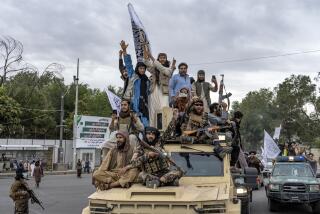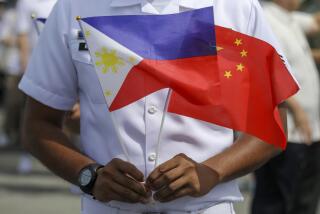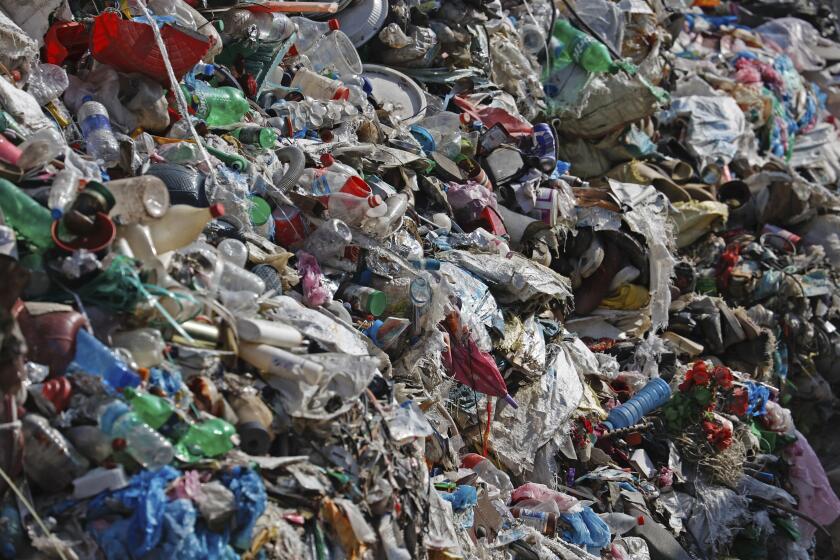India orders Italian envoy to stay put as two nations clash
NEW DELHI – India ratcheted up its diplomatic standoff with Rome over a shooting incident last year, issuing orders at major airports and seaports Friday that the Italian ambassador was not allowed to leave the country without permission.
The move could send relations into uncharted territory given international conventions against detaining diplomats. While it’s not unusual for countries to expel diplomats during a disagreement, it’s far less common to detain them.
New Delhi also canceled the posting of its own ambassador to Italy, according to local media reports – possibly fearful Rome might do the same to its diplomat, by some accounts – and threatened to review all business and trade ties between the two countries.
Relations spiraled downhill when two Italian marines on a passing oil tanker shot and killed two Indian fishermen in February 2012, reportedly mistaking them for pirates. Indian prosecutors have charged them with murder.
The Italians said the small fishing craft sailing toward them in international waters ignored repeated warning shots and appeared menacing. Fellow fishermen from India’s southern state of Kerala said they were veering away from the larger ship in Indian waters and said there were no warning shots before the marines opened fire.
After months of detention, India’s Supreme Court agreed to let the two marines, Massimiliano Latorre and Salvatore Girone, travel to Italy to celebrate Easter and vote in the recent general election after Italian Ambassador Daniele Mancini signed an affidavit that they would return to face charges.
But the Italian government announced Monday that the men weren’t going back to India, arguing that the incident happened outside Indian jurisdiction, even as it pledged to have the men tried in Italy.
In response, Indian Prime Minister Manmohan Singh on Wednesday warned Italy of “consequences” if the marines weren’t returned, accusing it of “violating every rule of diplomatic discourse.”
This was followed Thursday by a Supreme Court order that the Italian ambassador remain in the country pending a resolution, leading to Friday’s notice. “The Home Ministry issued an advisory today to immigration authorities that [the ambassador] should take permission if he is leaving the country,” Kuldeep Singh Dhatwalia, a ministry spokesman, said Friday.
Some said India’s action could be a violation of the Vienna Convention, which states that diplomats “shall not be liable to any form of arrest or detention.” Others countered that the ambassador hasn’t been detained or lost his diplomatic immunity, adding that he effectively agreed to submit to Indian jurisdiction with his Supreme Court affidavit.
“Not only did they shoot two Indians and run away, but they ignored the Supreme Court,” said Mohan Guruswamy, founder of New Delhi’s Center for Policy Alternatives, a think tank. “A normal diplomat doesn’t go to the court or surrender to the court in any matter. Once you do, you’re answerable.”
The issue has put the Congress Party-led Indian government on the defensive in the run-up to a 2014 election. The political opposition is calling it weak for not standing up to Italy, even as India’s hyperactive media suggest national pride is at stake. The Supreme Court feels slighted. And the two grieving families of the dead fishermen are calling for justice.
Adding to the mix, Congress Party head Sonia Gandhi, part of the Nehru-Gandhi political dynasty, is of Italian origin, which the opposition has used against her in the past. And a recent corruption scandal over alleged kickbacks for VIP helicopters involves the Finmeccanica group, which is partially owned by the Italian government.
The Supreme Court has asked the ambassador to appear Monday to explain his position, although this could get delayed since the marines have until March 22 to appear under the court’s one-month leave agreement. Mancini, meanwhile, has denied that Italy has reneged on its assurances. “We are not retracting,” the ambassador told reporters. “We put a number of proposals to the Indian authorities to solve this case by consensual means. This is what we still want to be doing.”
In an apparent salve, the mayor of Taranto, home of one of the marines, invited the children of the dead Indian fishermen to study in the port town. “The friendship between our two countries has been extensive, sincere and loyal, in every area,” Mayor Ippazio Stefano wrote in a letter to Singh, going on to praise Indian soldiers for helping liberate Italy at the end of World War II.
“It’s going to be messy,” said Guruswamy. “I think there will be a diplomatic rupture.”
ALSO:
Amnesty International urges caution in arming Syrian rebels
Using robotic device, paraplegic Israeli finishes Tel Aviv race
Vatican defends Pope Francis’ record during Argentina’s ‘dirty war’
More to Read
Sign up for Essential California
The most important California stories and recommendations in your inbox every morning.
You may occasionally receive promotional content from the Los Angeles Times.









